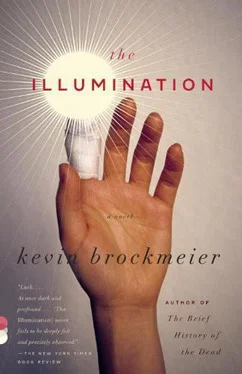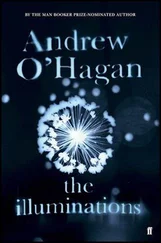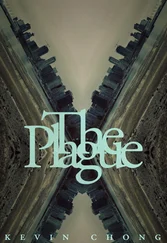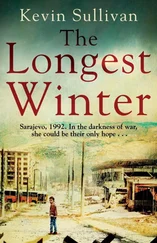Finally, on a blank sheet of paper, she wrote, If you are who I believe you are, tell me something only you would know about me .
She was unaccountably nervous. She knelt on the porch, closing her eyes as she slipped the note into the fissure. Something deep within the ground seemed to wrest it from her fingers like a fish plucking a cricket from a hook.
For the rest of the day, every time she went outside, she expected to see a flash of white paper waiting for her in the grass. But it was not until the next morning that she found one: I love your gray coat with the circles like cloud-covered suns .
She stared closely at the breach in her lawn. If she followed it on foot, she calculated, she would eventually reach the scorched field where she had gone to deposit her letters.
On a fresh sheet of paper, she replied, Everyone we know has seen me in that coat. It doesn’t prove a thing .
Early that afternoon, an answer arrived: I love how you laugh with your mouth wide open, and how you snort sometimes, and how embarrassed it makes you when you do .
She wrote, Well, yes, that’s definitely me .
I love the joke you told at Zach and Christina’s wedding reception .
She wrote, If this is a trick… this had better not be a trick. Is it?
I love how easily you cry when you’re happy .
So the correspondence went on, hour after hour and day after day, pushing across the distance of the soil. All his letters were love letters, delivered while she was sleeping or mopping the kitchen, weeding the garden or out buying milk. When she held them up to the sunlight, the faded marks of earlier messages emerged through the stationery: Bailey had two kittens last week, and I named the first one Bowtie, and the second one Mike! I hope you’re better now, I truly do, because I am, I tell you, I am. I think there’s something terribly wrong with me . They came in a variety of hands and were often hard to decipher. She presumed he had salvaged the pages from under the ground, a few dozen among the many hundreds of thousands that had rained down over the generations of the dead.
I love the way you stand at the mirror in the morning picking the lip balm from your lips .
I love the inexplicable accent, from nowhere anyone has ever visited, you use when you’re trying to sound French .
I love that first moment, at night, when you trace the curve of my ear with your fingernail .
Soon the situation no longer seemed strange to her. It was as if the two of them were kneeling on opposite sides of the bedroom door, sliding notes to each other along the floor. Then it was as if the door had vanished, vanished entirely, and they were simply sitting in the bedroom together. When she had crossed the threshold she could not say, only that she had. He was her fiancé—she did not doubt it—but what had brought him back to her?
It was one of those peaceful mid-April evenings with a coral sky the uniform hue of a paint sample, and from the hills of Los Angeles came the shick-shack of insects, and from the highways came the gusting sound of traffic, and because of a broken stoplight at Sunset and Laurel Canyon, she was fifteen minutes late to the bookstore, so one of the cashiers escorted her directly to the reading annex, a dimly lit room lined with shelf after shelf of remainders, where twenty or thirty people sat in poses of quiet thought or conversation, their shoulders touching as they swiveled around in their chairs, and he was not there, or at least she did not see him, and Once there was a country where no one addressed the dead except in writing , and Who was she? Who had she become? and She sensed that every word had demanded some mysterious payment from him, a fee that could only be understood by those who had already been laid to rest , and by the time she finished presenting the story, reaching the ever and the after , her eyes had adjusted to the darkness and she knew for certain—he had given up on her. It was just as well. The ulcer on her lip was still stinging, but a seal had begun to form over it, a clear bandage of skin with the texture of overlapping threads. She was recovering in spite of herself. She gave her mouth a quick investigation with her tongue. Deep in the pocket of her gums was the firm polyp of a sore, like an unpopped kernel of popcorn, that had developed without ever quite breaking the skin. On one of her cheeks was a minuscule dimpled lesion, and on her tongue itself was the same small scuff she had noticed the night before. None of them had become painful yet, though. If, after the reading, she spoke as little as possible, there was the slim possibility they would die away without getting any worse, and the ulcer on her lip would heal, and she would be graced with a few days of well-being before the next outbreak began.
She would bake a pizza—or better yet: a lasagna—and eat until she was stuffed.
She would have a long conversation with Wallace about his father.
She would find someone to fuck and she would fuck him.
A woman in the front row asked, “So that part where the dead begin to glow—is that supposed to be because they’re in pain? Because they don’t seem to be in pain. Are they?”
Well, there was physical pain, Nina answered, and there was emotional pain. This particular story offered little evidence of the former, maybe, but abundant evidence of the latter. Ever since she was a child, she answered. English Lit, she answered, with a minor in biology. No, she answered, not yet. She was afraid that as soon as she decided to incorporate it into her stories, the phenomenon would end as mysteriously as it had begun, and everything she had written would be cemented to a particular time and place. Now, she supposed. Now and here. (What else could she mean?) Constantly, she answered. At least two or three books a week. In fact, it was reading that was truly at the center of her life—experiencing stories, not making them. She was sure most other writers would say the same. No, she answered. Usually, she answered. Once or twice, she answered. Certainly she had changed since then, in innumerable ways. With her first book she had seen the world as a narrative, seen human lives as narratives. Now, instead, she saw them as stories. She wasn’t sure what had happened. Maybe she had experienced too much sickness. Maybe her sickness had made her less intelligent. Maybe her sickness had made her more sentimental. Maybe her sickness had returned her to the simple receptiveness of her childhood, when fitting people together seemed more important than taking them apart. No, it wasn’t that, she answered. She was just as interested in characters as she had ever been. But somehow she’d come to believe that characters were made up of their ideas and perceptions rather than their actions. A mistake, perhaps. She couldn’t argue with that. Yes, exactly, she answered. The traveling, she answered. The fact that she could go to work in a T-shirt and shorts, she answered, along with the privilege of participating in other people’s dreams, and most of all the thrill she got, the feeling of wondrous correctness, when a handful of words she had been organizing and reorganizing suddenly fastened themselves together, forming a chain that seemed to tug at the page from some distant, less provisional place, as if through an accidental pattern of sounds, rhythms, and insinuations she had linked herself to the beginning of the world, a time when words were inseparable from what they named and you could not mention a thing without establishing it in front of your eyes. It was the same feeling, she was convinced, that painters experienced through color, dancers through movement, photographers through light. The same feeling that mathematicians experienced through equations and actors experienced through emotion.
Читать дальше












